Quick Links
Humankind is a turn-based strategy game that allows you to grow your culture around the world. Unlike other games of the same genre though, you can change your culture through different eras. As you unlock a new era, you will be able to maintain your current culture or shift to another, adopting new units and building types.
Related: Humankind: Public Ceremonies – Are They Worth It?
Each culture will come with an affinity, providing additional perks. In this guide, we are going to go over the seven possible cultural affinities in the game, as well as what they do. These affinities have actions (which can be activated from the upper lefthand portion of your screen) under the era stars. Each affinity will provide a bonus, as well as an affinity action that is manually enacted. First, let's take a look at the Aesthete affinity.
Aesthete
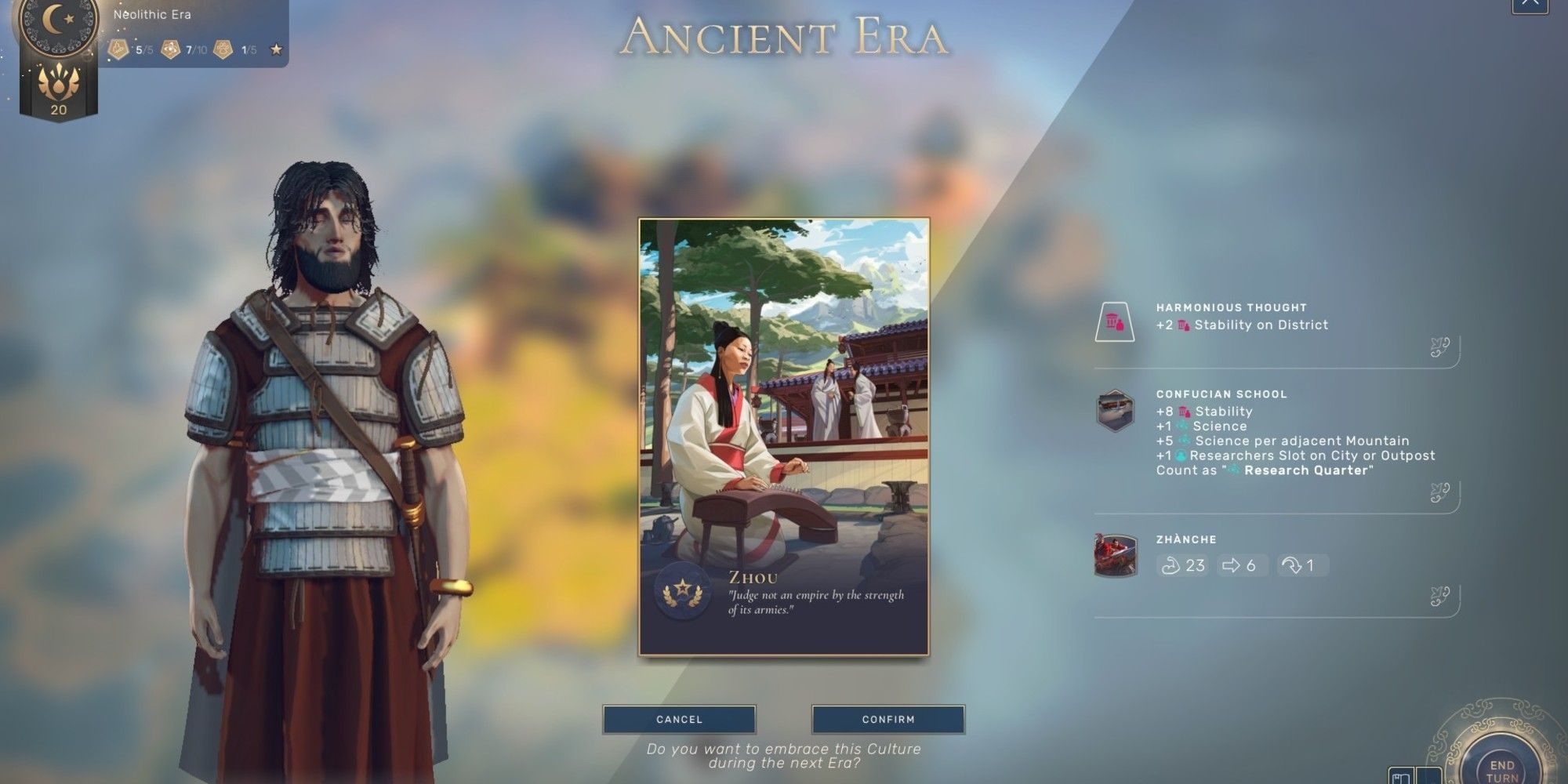
Cultures with this affinity prioritize Influence and diplomacy and will begiven the Grace bonus. This bonus will ensure that your Cultural and Ideological Proximity is always maxed out with every other culture, making diplomacy and creating treaties a bit easier.
The affinity action associated with Aesthete cultures is Cultural Blitz. This action allows you to pay money in order to bring your culture back into the sphere of influence. Cultural Blitz is very helpful if you have a city that has fallen out of the sphere of influence.
Here's every culture that has Aesthete throughout the eras:
| Era | Culture |
|---|---|
| Ancient |
|
| Classical |
|
| Medieval |
|
| Early Modern |
|
| Industrial |
|
| Contemporary |
|
Agrarian
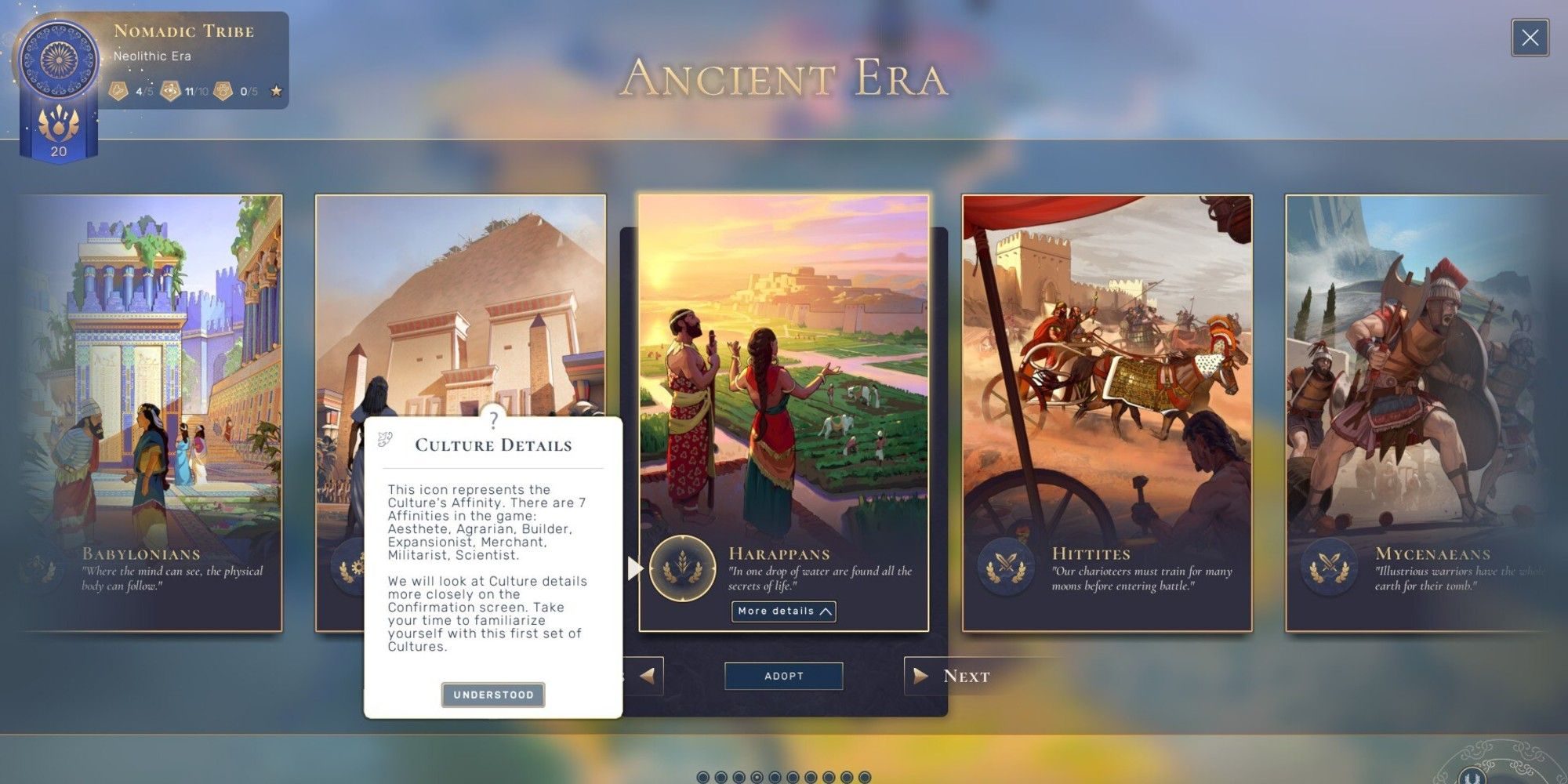
Cultures that embrace the Agrarian affinity prioritize population growth; focusing on the internal systems of their cities.
With the Agrarian affinity, you will be granted the Community bonus. This bonus provides five stability as your population increases. Although this only lasts one turn, the stability points gained will add up over time if you continue to grow your population.
The affinity action that Agrarian cultures will receive is called Land of Plenty. This action allows you to spend influence points to trigger population migrations into your chosen city. Land of Plenty will essentially steal the population from nearby cultures (including independent peoples). This is a great way to grow your cities, but it could anger some of your neighbors.
Below, you can find each culture that has an Agrarian affinity throughout each era:
| Era | Culture |
|---|---|
| Ancient |
|
| Classical |
|
| Medieval |
|
| Early Modern |
|
| Industrial |
|
| Contemporary |
|
Builder
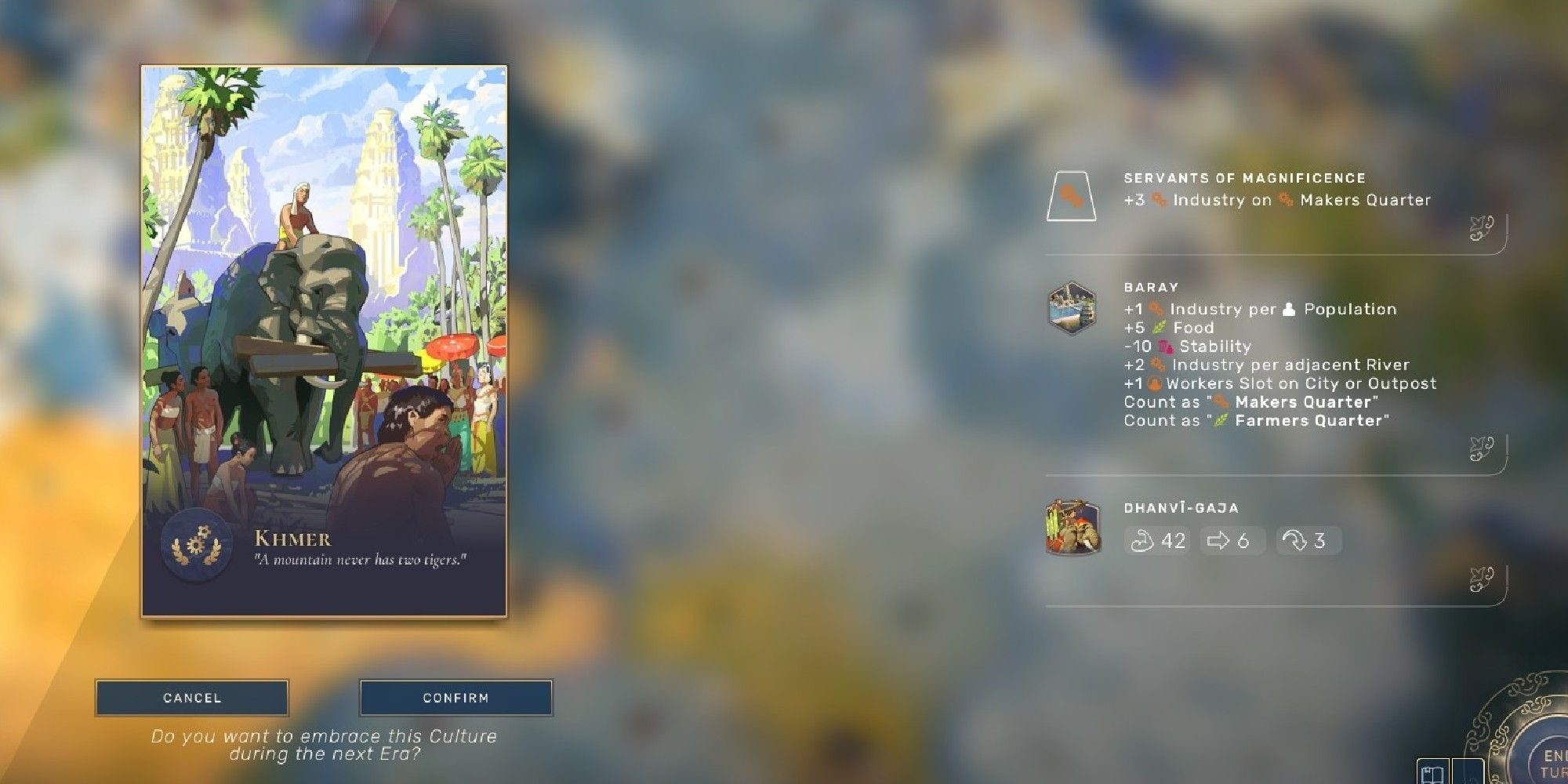
As the name suggests, cultures with the Builder affinity focus on industry and the construction of new districts.
Cultures with this affinity will receive the Pride bonus, which grants a city ten stability points after completing a district. Stability can be hard to manage early in the game, so this bonus is helpful, especially if you are struggling to raise stability in a city.
Builder cultures will have the Land Raiser action, which completely prioritizes industry in a city. When you activate Land Raiser on a selected city, it will convert all the money and science output into industry for at least five turns. While in Land Raiser mode, cities will only produce food and industry. The Land Raiser action is very useful if you are trying to construct a Wonder.
Below, you can find all cultures that have this affinity:
| Era | Culture |
|---|---|
| Ancient |
|
| Classical |
|
| Medieval |
|
| Early Modern |
|
| Industrial |
|
| Contemporary |
|
Expansionist
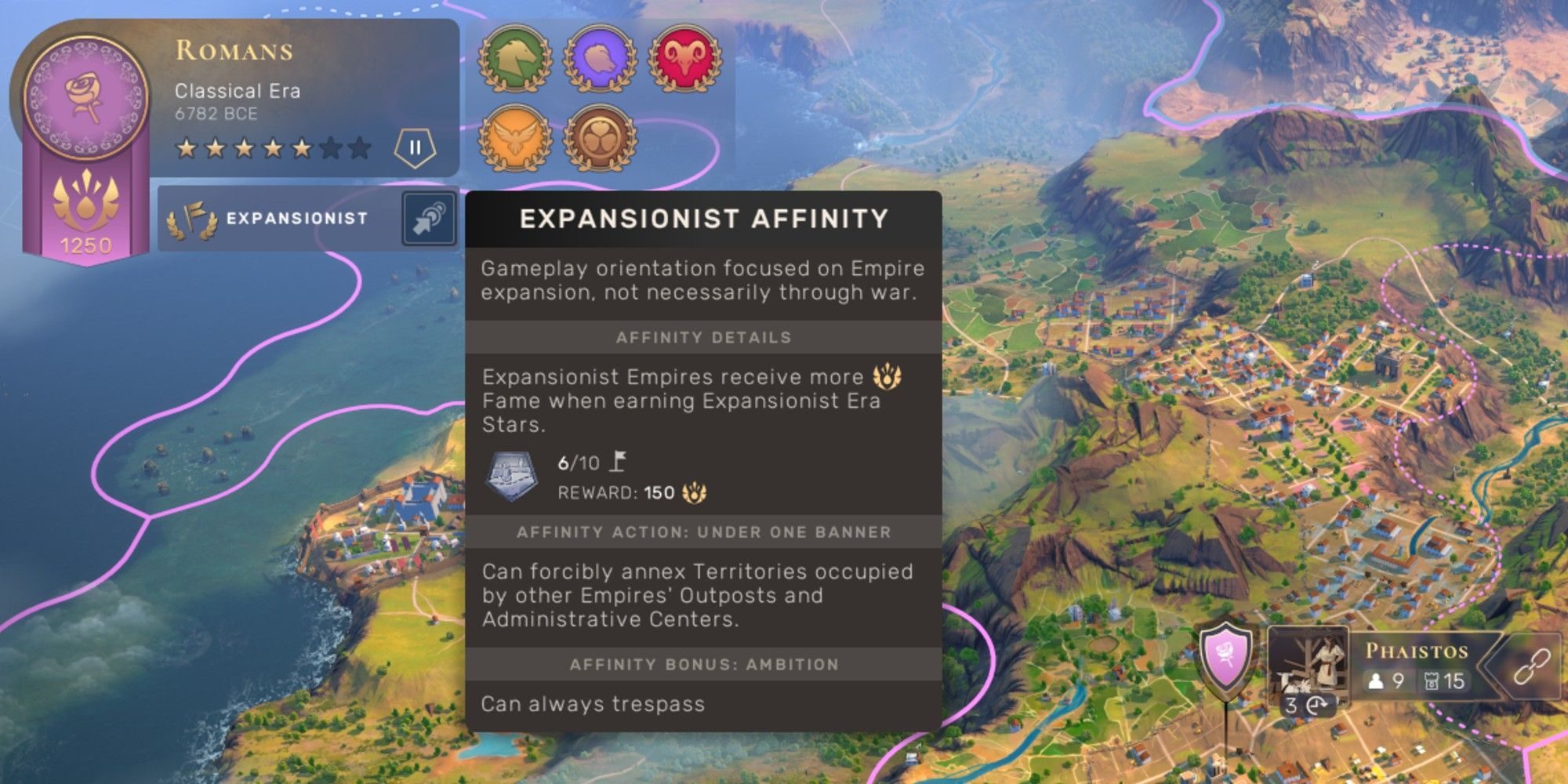
Expansionist cultures focus on expanding territory as far as possible. With this affinity, cultures receive the Ambition bonus. This bonus allows your units to trespass on foreign territory. Your units are not affected by the closed borders policy and will not suffer a health penalty.
Although you can trespass, a foreign culture may still have a Trespassing grievance, which can soon turn into a war declaration. Use the ability to trespass strategically rather than just planting units throughout another culture's land.
Expansionist cultures will have the Under One Banner action. This action allows you to forcibly annex a territory owned by another culture (if they are not your ally). Annexing a territory costs gold, and you will need to have an army standing on the outpost or administrative center of the chosen area. The process will take a few turns, and it can be interrupted if your army is attacked.
Below, you can find all the cultures that have the expansionist affinity throughout each era:
| Era | Culture |
|---|---|
| Ancient |
|
| Classical |
|
| Medieval |
|
| Early Modern |
|
| Industrial |
|
| Contemporary |
|
Merchant
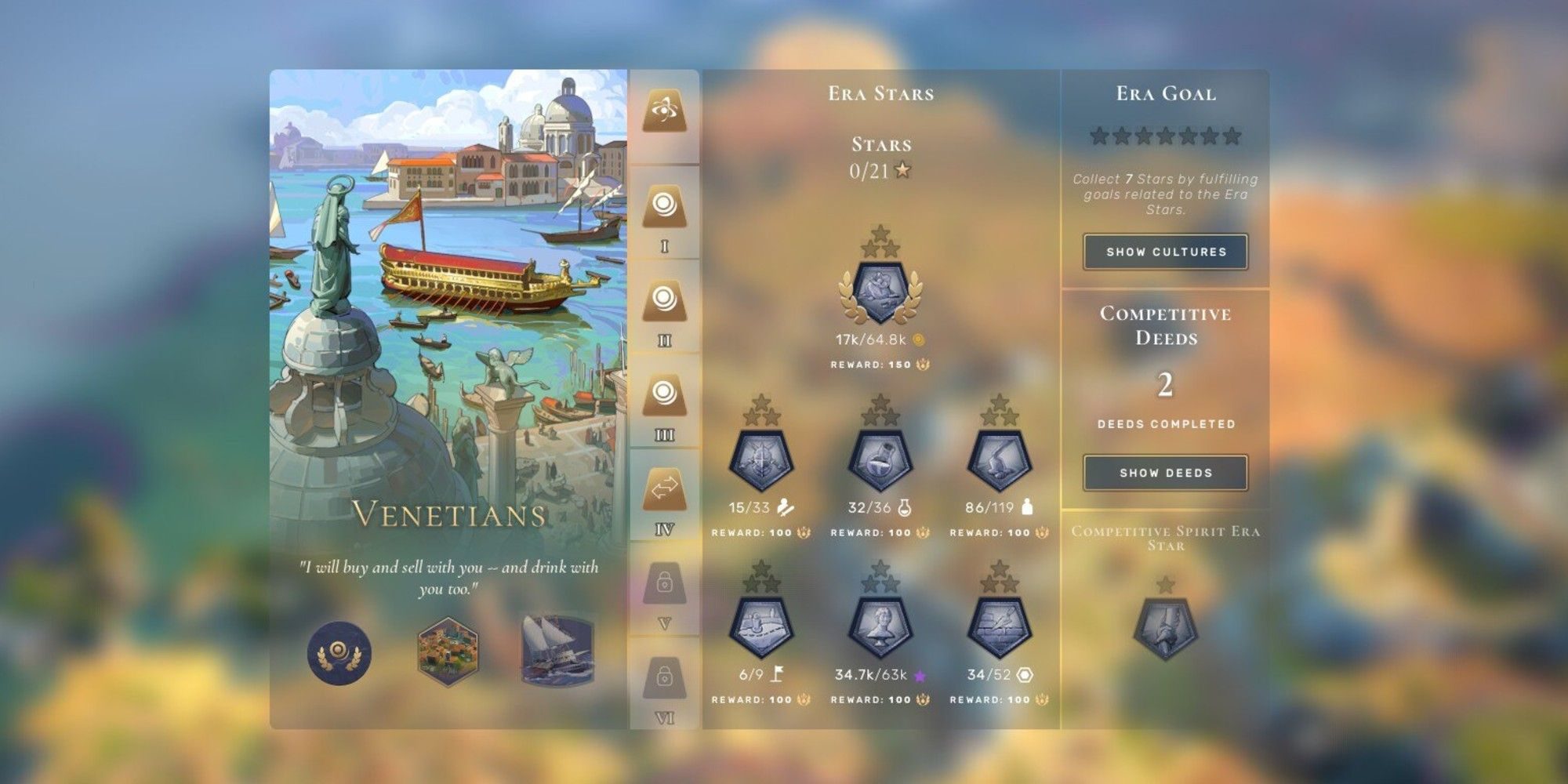
With the Merchant affinity, a culture will focus on money and trade. Those with this affinity will be granted the Mediation bonus, which allows the purchase of third-party resources. Basically, this means that you can purchase a good from another culture, and then a third culture could come to you to buy that resource. It's not technically your resource, but you would still profit from it.
The Power Investor action comes with the Merchant affinity. This action allows you to spend influence to place an extractor on a resource that is not currently being harvested. If an extractor is already on the resource, you will instead gain money each turn. These extractors can be placed within other cultures, where you will share the output. Additionally, this action may help improve diplomatic relations.
The Merchant cultures throughout each era can be found below:
| Era | Culture |
|---|---|
| Ancient |
|
| Classical |
|
| Medieval |
|
| Industrial |
|
| Contemporary |
|
Militarist
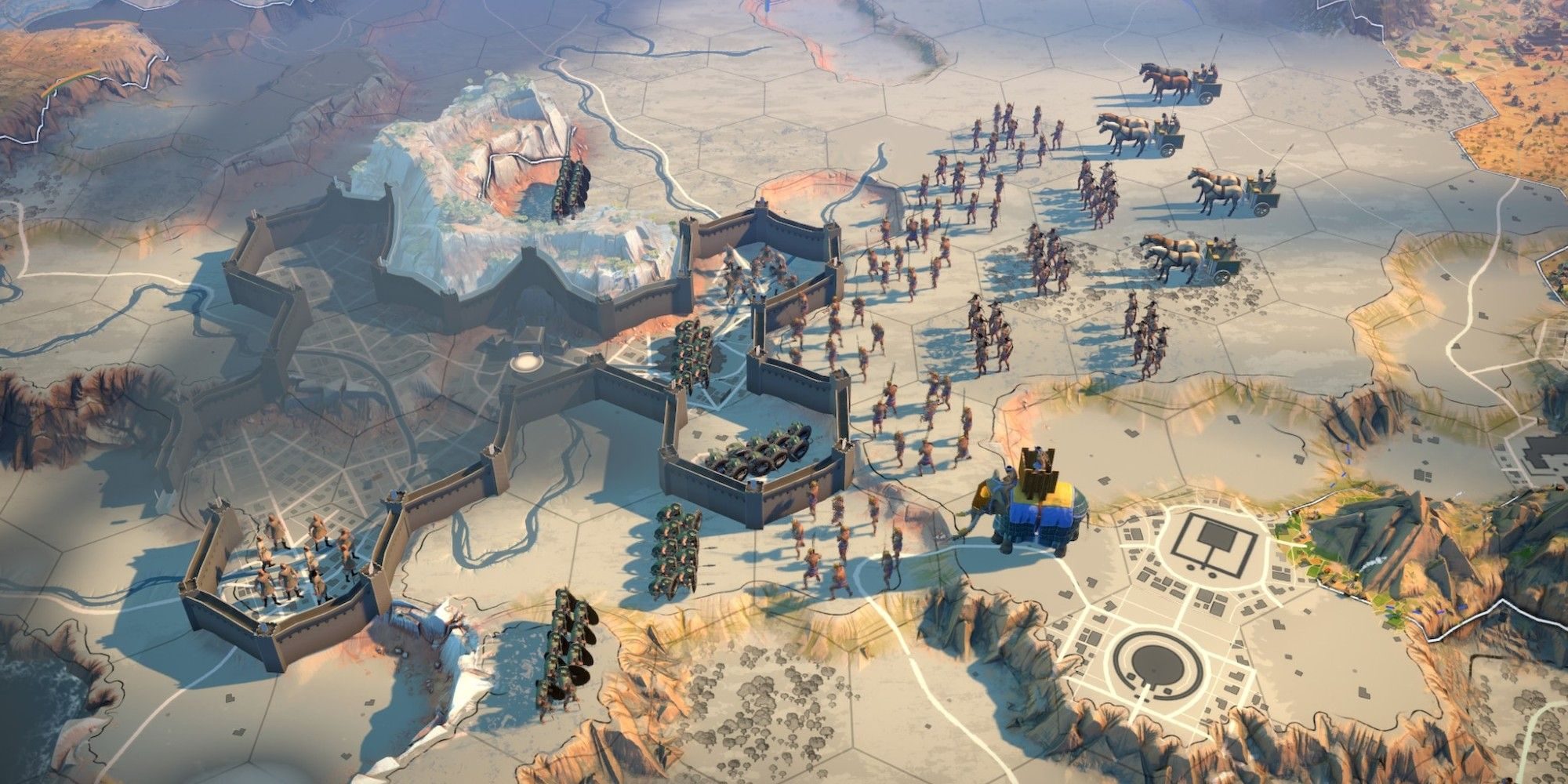
The Militarist affinity focuses on war. With this affinity, you will gain the Vigilance bonus, which increases your war support value. War support is essentially your culture's collective desire to start a war and cultures with low war support are not too keen on going to war. The Vigilance bonus increases this war support, making it easier to wage a war.
As a culture with the Militarist affinity, you will be able to use the Iron Reserves action. Doing so will create a Militia Armies unit in a city that has enough population to do so. These units function similarly to other military units. However, there is no upkeep cost and they appear immediately rather than taking a few turns to train.
Let's take a look at each culture with the Militarist affinity through each era:
| Era | Culture |
|---|---|
| Ancient |
|
| Classical |
|
| Medieval |
|
| Early Modern |
|
| Industrial |
|
| Contemporary |
|
Scientist
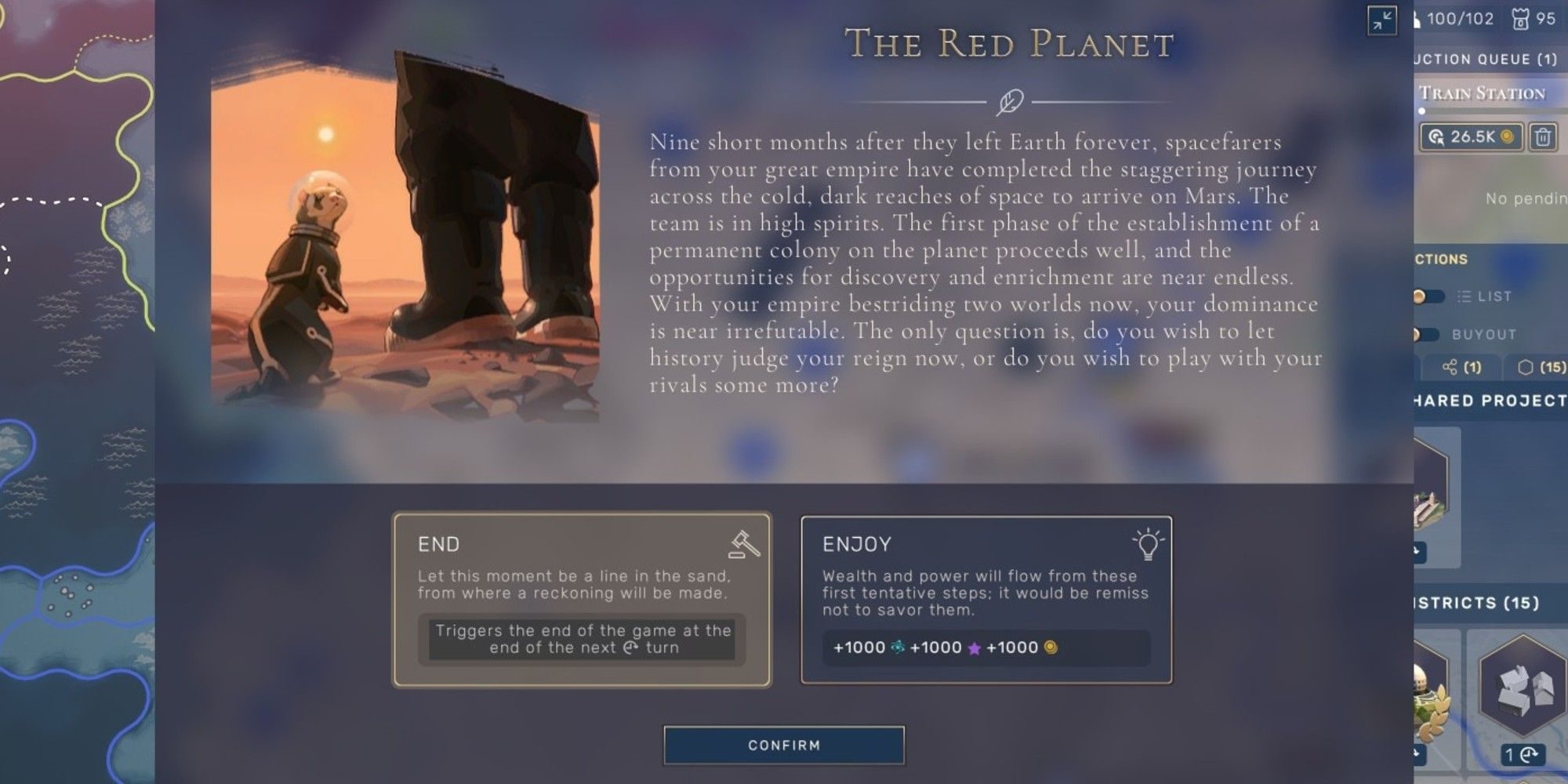
Lastly, we have the Scientist affinity. This affinity focuses on science and technology, making them frontrunners in the space race.
Cultures with the Scientist affinity will receive the Foresight bonus, which allows them to unlock technologies from the next era. This will help you get a head start on scientific research that impacts units and districts.
The Scientist affinity comes with the Collective Minds action. This action will convert all industry and money into science points for at least five turns. With additional science per turn, you will be able to unlock technologies quicker. Collective Minds functions similarly to the action for the Builder affinity.
Below, you can take a look at each culture that has the Scientist affinity through each era.
| Era | Culture |
|---|---|
| Ancient |
|
| Classical |
|
| Medieval |
|
| Early Modern |
|
| Industrial |
|
| Contemporary |
|
That's every cultural affinity in the game! Each era, you will have the option to choose a different affinity, however, it's important to pick an affinity that makes sense. For example, if you want to conquer the world, try to pick cultures with Expansionist or Militarist affinities. These cultures will excel at spreading across the map and conquering others.
Next: Humankind: City Management Guide




